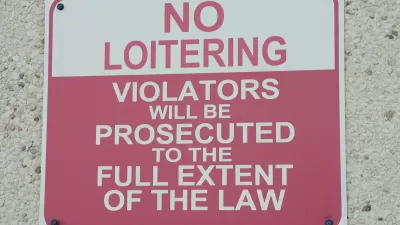Bucking national trends, Milwaukee reduced homelessness in 2024 through Housing First policies and supportive services, but local advocates warn high housing costs will likely lead to an increase in the unhoused population in the coming year.

While homelessness rose sharply at the national level in 2024, Milwaukee County saw a decrease in the number of unhoused residents, reports Anna Marie Yanny for Wisconsin Public Radio.
In the 2024 point-in-time count, conducted every year in January, Milwaukee County counted 885 unhoused people, compared to 1,056 in 2023. This is a 16 percent decrease, a stark contrast to the 18 percent nationwide increase. The number of homeless people rose in other Wisconsin cities and counties, Yanny notes.
What makes Milwaukee different? According to Milwaukee County Executive David Crowley, the county’s Housing First approach, coupled with wraparound services, has shown “encouraging results.” The county is also actively working with landlords to encourage them to rent to people who have been homeless through the 2024 “Landlord Incentives to Foster Tenancy” program.
However, local officials are warning that rising rents will likely lead to an increase in homelessness in the next count, scheduled for late January. “Milwaukee area organizers said they need more affordable housing, local investors and a slowed pace of rent increase.”
FULL STORY: Milwaukee resists national homelessness trend

Planetizen Federal Action Tracker
A weekly monitor of how Trump’s orders and actions are impacting planners and planning in America.

Map: Where Senate Republicans Want to Sell Your Public Lands
For public land advocates, the Senate Republicans’ proposal to sell millions of acres of public land in the West is “the biggest fight of their careers.”

Restaurant Patios Were a Pandemic Win — Why Were They so Hard to Keep?
Social distancing requirements and changes in travel patterns prompted cities to pilot new uses for street and sidewalk space. Then it got complicated.

Platform Pilsner: Vancouver Transit Agency Releases... a Beer?
TransLink will receive a portion of every sale of the four-pack.

Toronto Weighs Cheaper Transit, Parking Hikes for Major Events
Special event rates would take effect during large festivals, sports games and concerts to ‘discourage driving, manage congestion and free up space for transit.”

Berlin to Consider Car-Free Zone Larger Than Manhattan
The area bound by the 22-mile Ringbahn would still allow 12 uses of a private automobile per year per person, and several other exemptions.
Urban Design for Planners 1: Software Tools
This six-course series explores essential urban design concepts using open source software and equips planners with the tools they need to participate fully in the urban design process.
Planning for Universal Design
Learn the tools for implementing Universal Design in planning regulations.
Heyer Gruel & Associates PA
JM Goldson LLC
Custer County Colorado
City of Camden Redevelopment Agency
City of Astoria
Transportation Research & Education Center (TREC) at Portland State University
Camden Redevelopment Agency
City of Claremont
Municipality of Princeton (NJ)





























